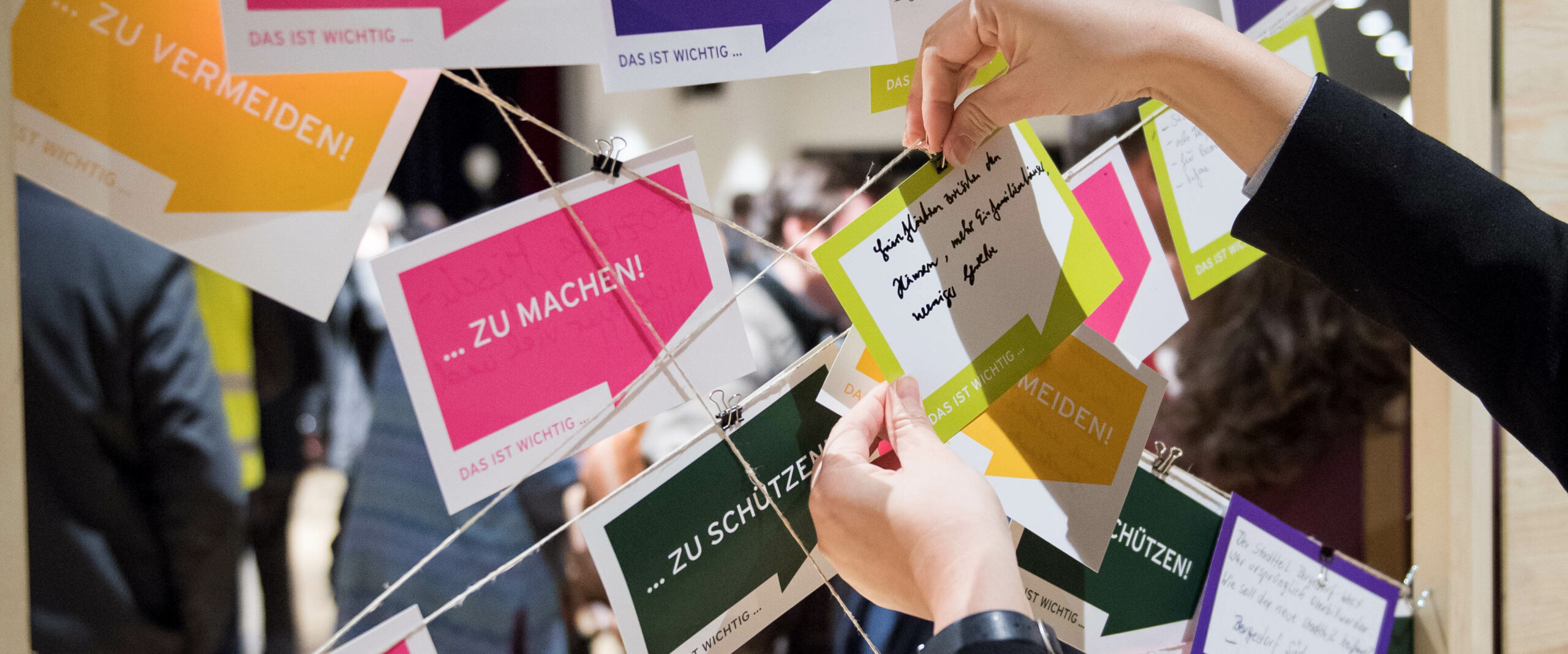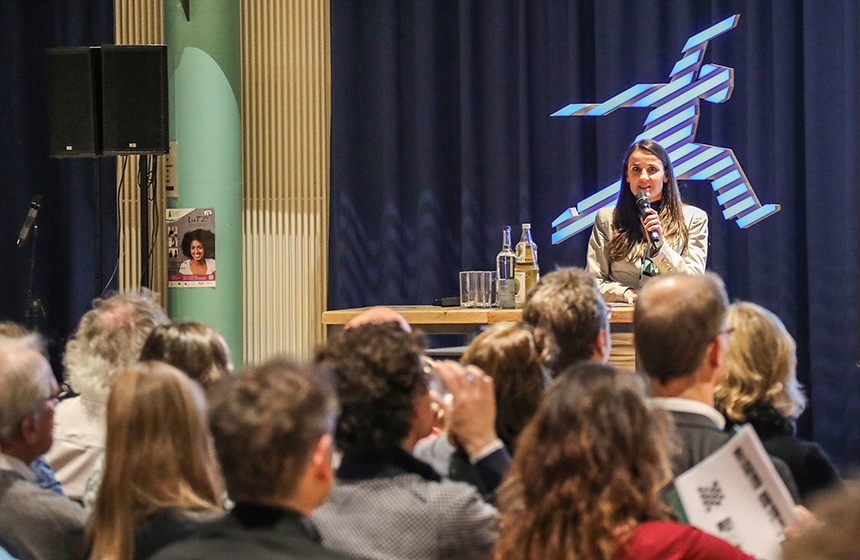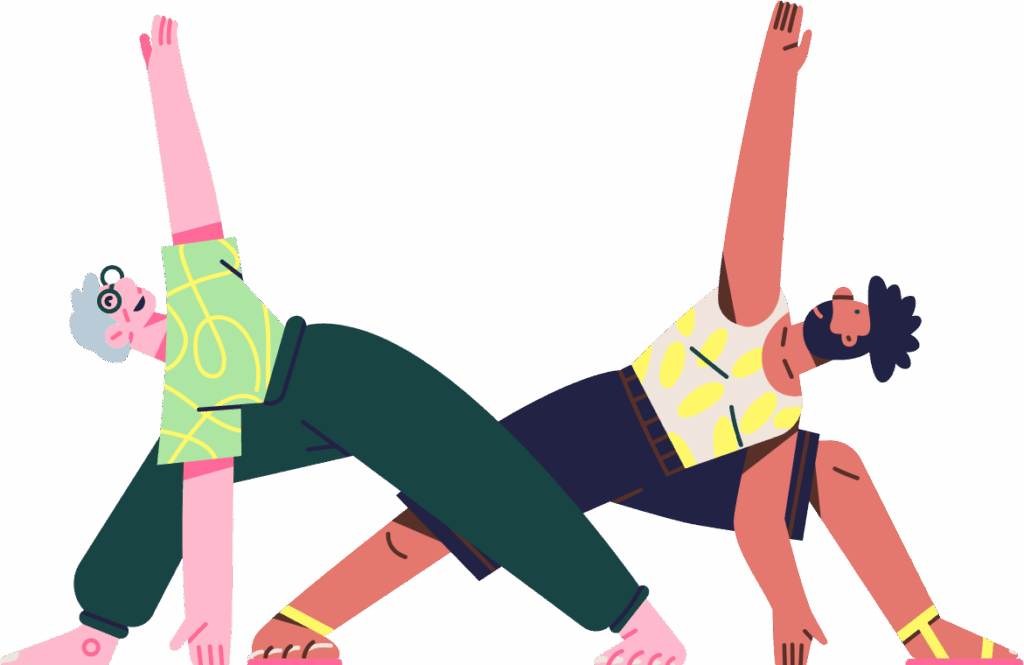
Participation
Participation right from the start!
For sustainable urban development, it is important that citizens and experts are involved in the planning process. Residents often have valuable knowledge that should be shared with planners. They have specific wishes and ideas or can identify needs. Experience shows that planning projects in which there is open dialogue from the outset ultimately lead to better results. IBA Hamburg has set itself the task of making the planning process for Oberbillwerder transparent and inviting participation. As part of the master planning process, this included events, discussions with associations and initiatives, target group-specific workshops, online participation opportunities, an ideas workshop with experts, and outreach surveys of local stakeholders in Bergedorf.

Experience shows that planning projects in which there is open dialogue from the outset ultimately lead to better results.
October 2016 to February 2017
Phase 1 – Informing and gathering information
The first phase began with a kick-off event in December 2016 and the opportunity to submit contributions online. This allowed wishes and ideas, concerns and criticism, as well as valuable suggestions for the Oberbillwerder area to be collected. The aim was to gauge the initial mood of the citizens. The nearly 600 contributions were sorted, documented in a brochure, made available for download and used in the ideas workshop.
Since autumn 2016, IBA Hamburg has been approaching initiatives, clubs, associations and institutions in the Bergedorf district with the aim of informing them about the planning process and generating interest in a personal exchange. In these outreach discussions, it was important to find out what opportunities and risks the discussion partners associate with the new district. It is also important to assess how Bergedorf, Neuallermöhe, Bergedorf-West and Billwerder can benefit from this development, for example with the creation of new facilities that are currently lacking in the Bergedorf district.
© Bente Stachowske / IBA Hamburg

March to June 2017
Phase 2 – Developing ideas
At the ideas workshop on March 2nd and 3rd 2017, renowned experts from the fields of planning and science came together and developed forward-looking proposals, ideas, theses and concepts that will form the basis for the subsequent planning steps. Together with citizens and experts, they worked in small groups in the evenings and concluded by discussing the theses and ideas they had developed.
Ideas workshop © IBA Hamburg
June 2017 to May 2018
Phase 3 –Making plans
All findings from phases 1 and 2 were incorporated into a task specification, on the basis of which an urban development design for Oberbillwerder is to be created. The transparency and openness to discussion that characterised the previous phases should also guide the development of the master plan. For this reason, the competitive dialogue procedure in accordance with Section 18 of the Public Procurement Ordinance (VgV) was chosen. The planning process for Oberbillwerder was to be as citizen-oriented as possible. The two-phase process began in autumn 2017 and ended in May 2018. During this period, six public events were held with the planning teams and interested members of the public. At the end of the first qualifying phase, four of the twelve participating planning teams were selected to further develop and refine their designs in the second dialogue phase.
Feedback from citizens was passed on to the planning teams and the advisory committee at all stages. On May 24th 2018, the advisory committee approved a draft that will serve as the basis for the master plan and further planning.
What happens next? The public will continue to be kept regularly informed during the ongoing planning process and invited to participate wherever possible. You can find the latest news under Information & Participation.
Open dialogue
Experience shows that planning projects in which there is open dialogue from the outset ultimately lead to better results.
Frequently Asked Questions
What is a master plan?
A master plan can be used to develop urban planning strategies and proposals for action. It describes the functions and qualities that the area should have and serves as a guideline for concrete measures for further development. A master plan highlights the overarching goals and outlines issues such as urban development (e.g. height, use and layout of buildings), the general traffic situation or the importance of open spaces in the area.
Details such as the architecture of the buildings or the design of the open spaces are not yet specified in a master plan. The master plan must be updatable and flexibly expandable so that it can be adapted to changes in the overall situation, the environment or similar factors.
What is competitive dialogue?
The master plan for the new Oberbillwerder district is being developed through a competitive dialogue procurement procedure in accordance with Section 18 of the German Public Procurement Ordinance (VgV). Competitive dialogue is a procedure used to award contracts for particularly complex issues.
The development of a new district of this magnitude is of outstanding importance for the Bergedorf district and the Free and Hanseatic City of Hamburg. For this reason, on September 28th 2016, the Senate Commission for Urban Development and Housing expressly emphasised the importance of choosing a very open and transparent process for the development of the master plan, with many opportunities for participation by the public, experts, business, politics and administration, and of ensuring extensive citizen participation. To guarantee this, the competitive dialogue procedure was chosen.
The competitive dialogue opens up the possibility for open and transparent participation formats involving the participating planning offices. The two-phase process will begin in autumn 2017 and end in May 2018. During this period, five public events will be held with the planning teams and citizens. At the end of the first qualifying dialogue phase, the field of 12 participating interdisciplinary planning teams (from the fields of urban planning, landscape architecture and architecture) will be reduced by a maximum of four, and at the end of the second, in-depth dialogue phase, the design from which the master plan is to be developed will be selected. A combination of design ideas is also conceivable.

